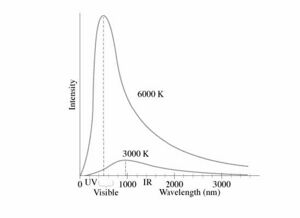Lecture Notes: Difference between revisions
No edit summary |
No edit summary |
||
| Line 12: | Line 12: | ||
[[Image:C_DOCUME~1_vlad_LOCALS~1_Temp_npsF49.jpg|thumb|right]] | [[Image:C_DOCUME~1_vlad_LOCALS~1_Temp_npsF49.jpg|thumb|right]] | ||
*Phase Transitions | |||
Van der Waaals equation and the liquid-gas critical point. Concept of universality. | Van der Waaals equation and the liquid-gas critical point. Concept of universality. | ||
*Crystalline Solids | |||
[[Image:beat-up car.jpg|thumb|left|200px|This beat-up car certainly does not look nearly as pretty as the "''girl's best friend"'' - the diamond. Under the microscope, however, both look very similar - they both are simply '''periodic arrays of atoms''' .]] | [[Image:beat-up car.jpg|thumb|left|200px|This beat-up car certainly does not look nearly as pretty as the "''girl's best friend"'' - the diamond. Under the microscope, however, both look very similar - they both are simply '''periodic arrays of atoms''' .]] | ||
| Line 23: | Line 23: | ||
Classification and measurement of crystal structures; crystal growth. | Classification and measurement of crystal structures; crystal growth. | ||
*Lattice Properties | |||
Phonons, thermal properties, phonon density of states and scattering. | Phonons, thermal properties, phonon density of states and scattering. | ||
*Free Electron Model of Metals | |||
Electric conductivity and Hall effect, electronic specific heat. | Electric conductivity and Hall effect, electronic specific heat. | ||
*Band Theory of Solids | |||
Electron in a periodic potential, Fermi surface, classification of solids. | Electron in a periodic potential, Fermi surface, classification of solids. | ||
*Semiconductors | |||
Semiconducting materials, electrical and optical properties. | Semiconducting materials, electrical and optical properties. | ||
*Semiconductor Devices | |||
Diodes, transistors, opto-electronics, integrated circuits, molecular electronics. | Diodes, transistors, opto-electronics, integrated circuits, molecular electronics. | ||
*Superconductivity | |||
Materials and phenomena, BCS description, superconducting junctions and devices. | Materials and phenomena, BCS description, superconducting junctions and devices. | ||
*Magnetism | |||
Classification of magnetism, ferromagnetic materials, information storage, spin electronics. | Classification of magnetism, ferromagnetic materials, information storage, spin electronics. | ||
*Beyond solids: soft materials | |||
Liquid crystals, polymers, membranes, and more. | Liquid crystals, polymers, membranes, and more. | ||
Revision as of 19:30, 6 January 2009
- Introduction: Emergence in Condensed Matter
Macroscopic properties of materials and classification of phases: gases, liquids, solids, and more...
- Atoms as Building Blocks
How important is Quantum mechanics for understanding "Big" objects around us? Inter-atomic forces.
- Review
Modern physics and elementary concepts in quantum mechanics.
- Phase Transitions
Van der Waaals equation and the liquid-gas critical point. Concept of universality.
- Crystalline Solids
Classification and measurement of crystal structures; crystal growth.
- Lattice Properties
Phonons, thermal properties, phonon density of states and scattering.
- Free Electron Model of Metals
Electric conductivity and Hall effect, electronic specific heat.
- Band Theory of Solids
Electron in a periodic potential, Fermi surface, classification of solids.
- Semiconductors
Semiconducting materials, electrical and optical properties.
- Semiconductor Devices
Diodes, transistors, opto-electronics, integrated circuits, molecular electronics.
- Superconductivity
Materials and phenomena, BCS description, superconducting junctions and devices.
- Magnetism
Classification of magnetism, ferromagnetic materials, information storage, spin electronics.
- Beyond solids: soft materials
Liquid crystals, polymers, membranes, and more.

